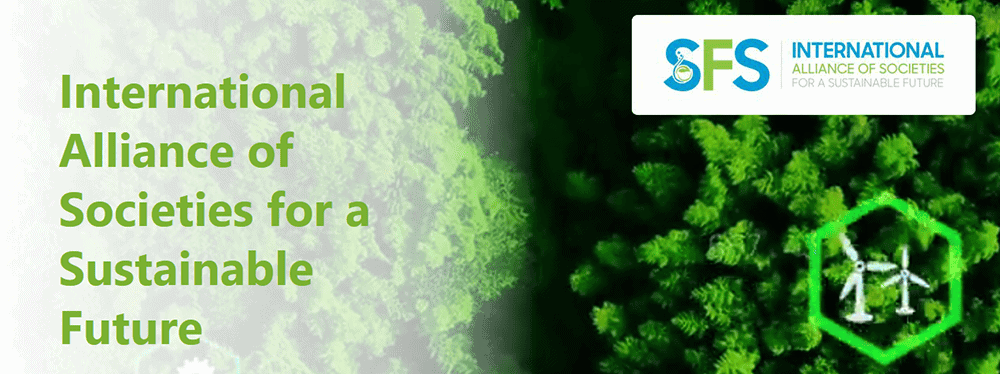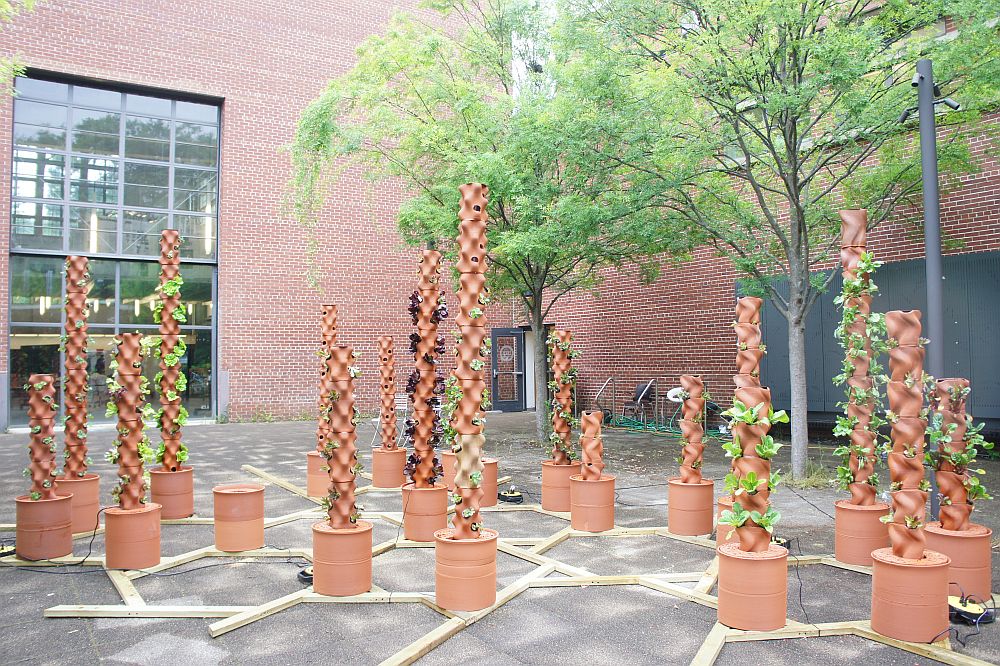
[Image above] The newly established International Alliance of Societies for a Sustainable Future aims to recognize, communicate, and actively work to counter the sustainability crisis. Credit: SFS Alliance
Definitions are not just statements that provide the exact meaning of a word. How we choose to define people, objects, and concepts has major effects that resonate throughout society.
Consider the definition of glass, for example. Glass has been essential for the development of today’s modern civilization, as evidenced by the United Nations recognizing this material with an International Year in 2022. Yet most definitions for glass define the materials as either a solid or liquid, which overlooks the true complexity of the glassy state that combines features of both phases of matter.
By defining glass in a way that fundamentally misrepresents the material’s true nature, breakthroughs in glass science may take longer to happen because scientists will not design experiments or interpret results in ways that account for the glassy state’s complexity. For this reason, ACerS Fellows Edgar Zanotto and John Mauro proposed a new definition for glass in 2017 that recognizes its unique characteristics.
On a broader societal level, the transition to a more sustainable society is facing challenges due in part to the definition that governments use for this concept.
The most used definition of sustainability comes from a 1987 report by the Brundtland Commission, which was established by the United Nations in 1983 and named after the first chairperson, Gro Harlem Brundtland. The report states that sustainable development “meets the needs of the present without compromising the ability of future generations to meet their own needs.”
The report further states that sustainable development is not a fixed state of harmony, but rather “a process of change in which the exploitation of resources, the direction of investments, the orientation of technological development, and institutional change are made consistent with future as well as present needs.”
This second part of the definition, however, is much less frequently quoted because “it contains a holistic behavior change, which turned out to be less consensual in the political arena,” three authors write in a recent open-access paper.
The authors are ACerS Fellows Jürgen Rödel and Dragan Damjanovic at the Technical University of Darmstadt, along with their colleague Alexander Frisch. In their paper, which published in October 2023, they expand on the initial entreaty that Rödel made in a September 2022 Bulletin “Letter to the editor” to urge scientists to help publicly communicate the sustainability crisis.
In addition to calling on individual scientists, the authors describe the important role of international scientific networks in communicating this crisis. As they explain, “the sustainability crisis consists of several parallel problems and is therefore systemic and integrative in nature,” and so “changes in one aspect may affect another field.”
Encouragingly, the authors note a recent contribution by materials scientists to the arena of international networks. Specifically, the newly established International Alliance of Societies for a Sustainable Future (SFS Alliance).
The SFS Alliance, which was established in fall 2023, is a joint committee of the German Ceramic Society, The American Ceramic Society, the European Ceramic Society, and the German Materials Society. The alliance aims to
- Raise awareness of the global sustainability crisis,
- Promote the understanding and application of sustainable practices, and
- Provide a platform to share knowledge and develop innovative ideas.
In addition to Rödel, who is chairperson of the SFS Alliance, ACerS past president Sanjay Mathur (2022–2023) helped initiate the formation of this alliance and serves on the founding Board.
The SFS Alliance will hold its first event on February 6. Rödel will talk about the sustainability crisis and new alliance during a free webinar at 11 a.m. Eastern (5 p.m. Central European Time). Register here to attend the free webinar.
People who are interested in getting involved with the SFS Alliance can email Rödel at roedel@ceramics.tu-darmstadt.de.
Author
Lisa McDonald
CTT Categories
- Environment


